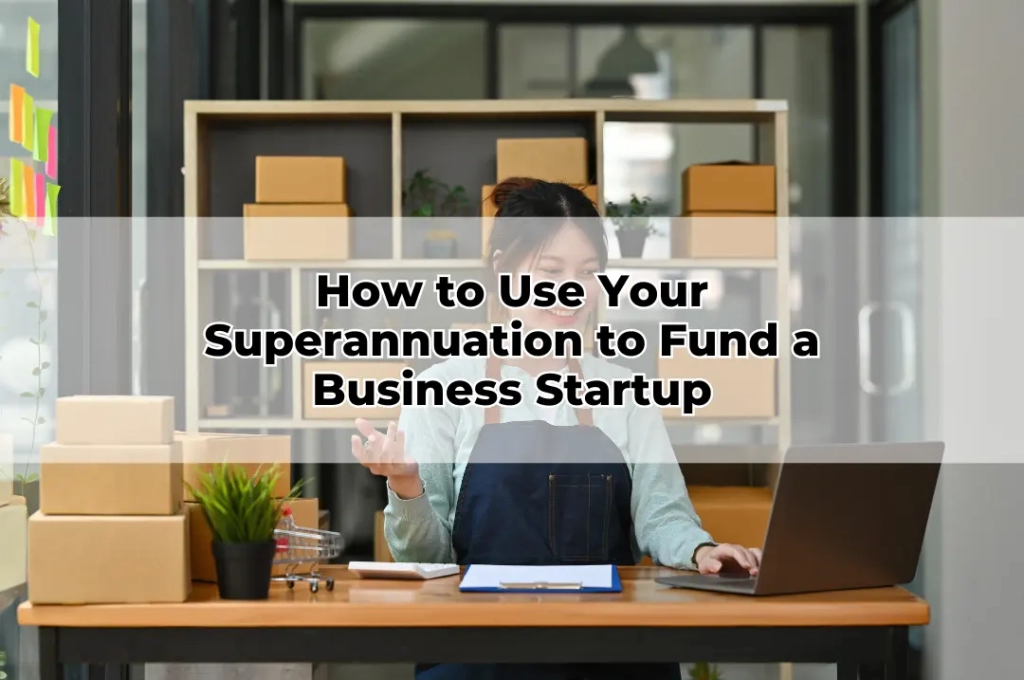How to Use Your Superannuation to Fund a Business Startup
Table of Contents
ToggleAustralia’s superannuation system is designed to provide financial stability in retirement. However, for those with entrepreneurial ambition and strategic foresight, super can also become a powerful funding mechanism for launching a business venture. Leveraging superannuation through a Self-Managed Superannuation Fund (SMSF) to support a startup is a complex but potentially rewarding pathway-provided it’s structured within the legal framework. Understanding how to do so responsibly can mean the difference between wealth creation and non-compliance.
The Legal Landscape for Superannuation Use
The use of superannuation to fund a business is tightly regulated by the Australian Taxation Office (ATO). Superannuation must remain invested for the sole purpose of providing retirement benefits, not personal or pre-retirement business gain. The only viable route for utilising super funds in this context is via an SMSF under very specific conditions. Breaching these can lead to significant penalties, loss of fund status, and personal liability. As a Toowoomba Financial Adviser, the cornerstone of responsible advice is ensuring compliance remains at the forefront of any strategy.
The Role of a Self-Managed Superannuation Fund (SMSF)
An SMSF grants individuals control over their super investments, including the potential to invest in business ventures. Unlike retail or industry funds, SMSFs can be structured to purchase assets such as commercial property or unlisted shares, provided the investment satisfies the ‘sole purpose test‘. For those looking to use superannuation to fund a business startup, this means the business must be at arm’s length and any investment made by the SMSF must benefit the members in retirement-not now. Structuring this correctly is essential to avoid compliance breaches.
What the Sole Purpose Test Means for Business Funding
The ‘sole purpose test’ underpins all superannuation investment strategies. It mandates that all SMSF activities must be for the provision of retirement benefits. In the context of funding a startup, this presents both opportunity and constraint. The SMSF may invest in a business, but it cannot offer financial support directly to a related party. If the SMSF owns part of a business, it must be at market value, at arm’s length, and with clear separation between personal involvement and fund operations. This complexity requires precise legal and financial planning.
Using an SMSF to Purchase Commercial Property for Your Business
One of the most common and compliant ways to use your super to support a business is for the SMSF to purchase commercial property and lease it to your business. This strategy complies with ATO rules if the transaction is at market rates, lease agreements are properly documented, and the SMSF receives fair rent. This allows entrepreneurs to unlock the value of their super while providing their business with premises, often creating dual benefits: capital growth within the SMSF and consistent rental income.
Investing in Private Companies or Business Ventures via SMSF
An SMSF can invest in private companies, including startups, under strict conditions. The company must not be a ‘related party’ in most cases. Exceptions exist when investing less than 5% of the SMSF’s total assets. The transaction must be on commercial terms and properly documented. An experienced Online Financial Adviser can assist in structuring such investments to ensure they meet the ATO’s arm’s-length rules and don’t compromise the fund’s compliance or future tax advantages.
Setting Up an SMSF with a Business Investment Strategy
Establishing an SMSF with the intention of business investment demands deliberate planning. The fund must be structured with a robust investment strategy that articulates why and how business investment aligns with members’ retirement goals. This strategy must be reviewed regularly and substantiated with documentation. Risk tolerance, diversification, liquidity, and the ability of the SMSF to meet its obligations must be factored in. Financial Planning in Toowoomba requires this approach to be clear and aligned with both regulatory obligations and long-term outcomes.
Risks and Pitfalls of Using Super to Fund a Startup
While the allure of funding a business via superannuation can be strong, the risks are significant. A failed business can deplete retirement savings. Non-compliance with superannuation law can result in severe penalties. Liquidity constraints can arise if business assets underperform or become illiquid. Further, business volatility can negatively impact retirement timelines. A conservative and compliant strategy-crafted with guidance from a qualified Toowoomba Financial Adviser-is vital to protect your wealth and your fund.
Advantages of Super-Funded Startups with Strategic Planning
Despite the risks, strategic use of superannuation in a startup context can deliver compelling benefits. These include access to long-term patient capital, potential tax efficiencies, and greater control over retirement assets. When coupled with strong business fundamentals and a robust compliance strategy, an SMSF can enable entrepreneurs to align their professional vision with their long-term financial security. It is, however, a sophisticated strategy best pursued with detailed planning and professional oversight.
Tax Considerations and Compliance Reporting
Using super to fund a business startup introduces a range of tax considerations, including concessional tax rates on SMSF earnings, capital gains treatment, and contribution caps. All SMSF investments must be transparently reported in annual returns. If the business generates income for the fund (e.g., through rent or dividends), it must be properly declared. SMSF trustees must also ensure that all related-party transactions are disclosed and compliant. Expert Retirement Financial Advice is critical to optimise outcomes and meet these obligations.
When to Seek Professional Advice
Using superannuation to fund a business startup is not suitable for every entrepreneur. The regulatory complexity and financial risk require careful deliberation. Engaging a professional Online Financial Adviser early in the process can prevent costly missteps and unlock tailored strategies that align with retirement goals. From SMSF setup to investment execution, each stage should be overseen by experienced professionals who understand the intricate interplay between business and superannuation law.
Alternatives to Using Superannuation for Startup Funding
While superannuation can offer a strategic funding path, alternatives may present fewer regulatory hurdles. These include equity financing, small business loans, venture capital, or personal savings. For some, keeping superannuation separate from business ventures may offer greater peace of mind. A comprehensive review of all funding options, risk appetites, and retirement timelines can help entrepreneurs determine the most appropriate path forward. Financial Planning in Toowoomba is centred on delivering tailored, pragmatic advice to suit individual client needs.
Conclusion
Leveraging superannuation to fund a business startup is a nuanced strategy that blends ambition with responsibility. For those who pursue this path through an SMSF, the opportunity exists to unite entrepreneurship with retirement wealth creation. But success hinges on strict adherence to regulations, clear investment strategies, and robust oversight. With guidance from a seasoned Toowoomba Financial Adviser, it is possible to strike this balance-transforming retirement savings into a platform for enterprise and long-term prosperity.









